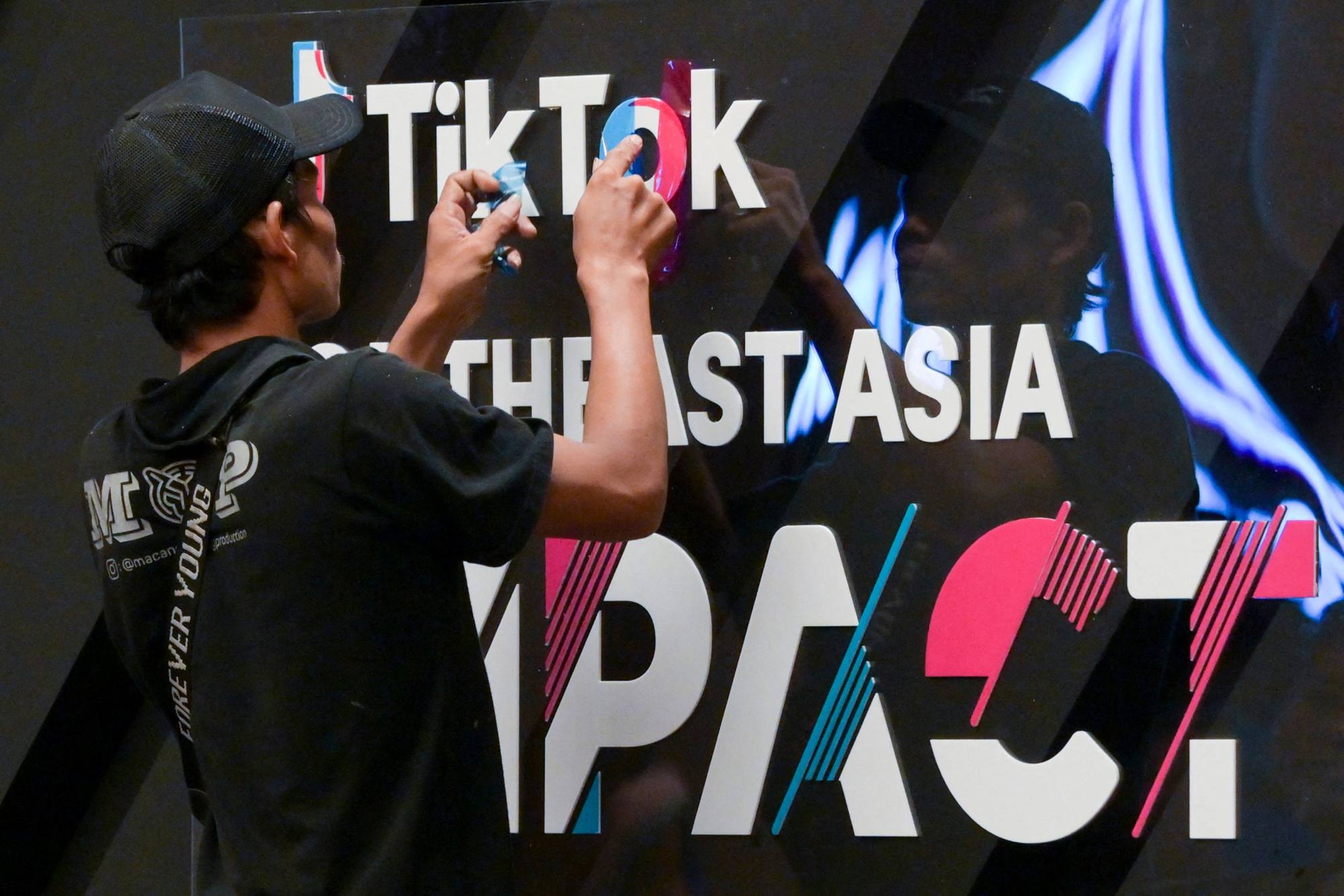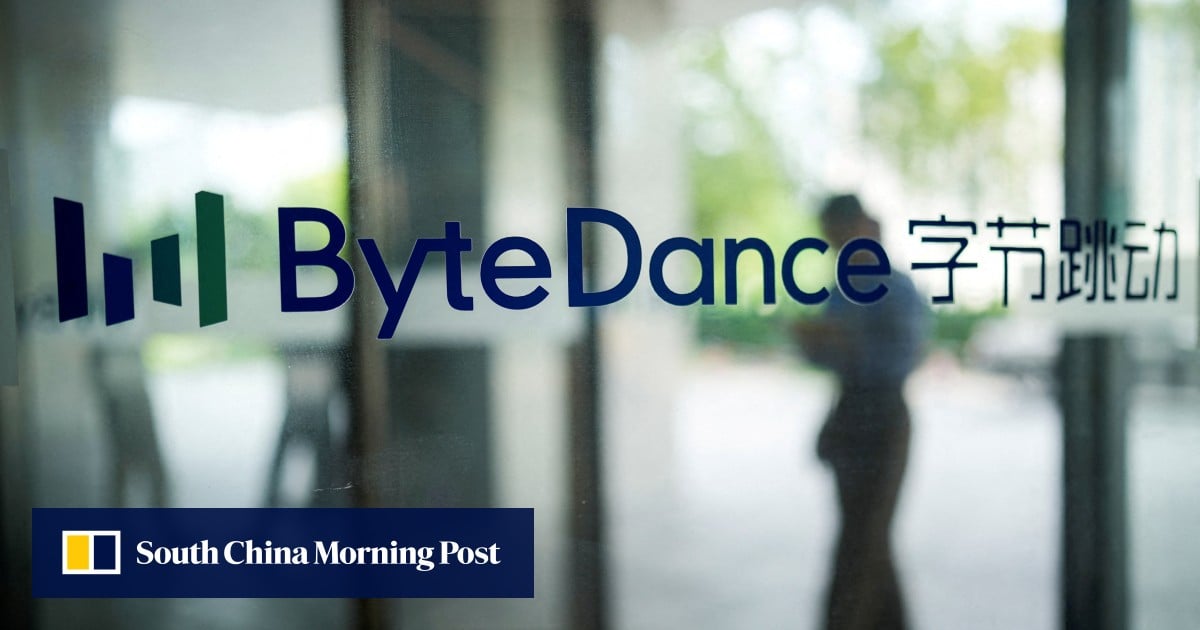In other words, ByteDance – which had divided itself into six units including gaming, education, TikTok, Douyin, enterprise collaboration platform Feishu and cloud service Volcano Engine – has drastically shrunk two of its businesses. Meanwhile, education has hardly lit up the room since Beijing cracked down on private tutoring in 2021.
It is quite a reversal for the company that disrupted the decade-old BAT stranglehold on China’s tech sector, made up of search engine and AI giant Baidu, e-commerce heavyweight Alibaba Group Holding and social media and video gaming titan Tencent Holdings. Alibaba owns the Post.

ByteDance is also one of the few Chinese tech firms to crack the overseas market with the rip-roaring success of TikTok, which has more than 1 billion monthly active users globally, according to company information.
Some of the difficulties can be explained by the company’s understandable aim to diversify revenue sources away from short video – something it has spent billions of dollars on.
For example, the company spent around 30 billion yuan (US$4.2 billion) alone on video gaming acquisitions and investments covering more than 20 studios between 2019 and 2022, according to local media outlet DingjiaoOne. But fruitful returns have been hard to find.
“While the company made US$54 billion in the first half of 2023, less than one per cent of that came from their video games business,” said Lisa Hanson, chief executive of gaming industry consultancy Niko Partners.
“Compared to earlier periods where management was mainly focused on growth and innovation, it now appears to be strongly focused on profitability,” said Drew Bernstein, co-founder and co-chairman of accounting firm Marcum Asia, who has been an auditor and adviser to Chinese companies since 1999.
Douyin tests the waters with popular dining table list in challenge to Meituan
Douyin tests the waters with popular dining table list in challenge to Meituan
“They seem to be narrowing their focus to a business where they can be at the top,” he said, adding that the current shift in strategy is a good thing from an accounting point of view.
Some observers are not surprised by the pullback, pointing out that Zhang was never a gaming enthusiast prior to dipping his toe in the market. Yan Shou, head of ByteDance’s gaming unit, spent most of his career in strategic investment and hired several people with a consulting and strategy background, according to one former employee.
“ByteDance is best known for TikTok/Douyin, not for video game development or publishing,” said Hanson from Niko Partners, adding that the company would maintain an impact in game promotion given its “massive base of TikTok users”.
According to industry publication Sykong_com, unit head Yan and company chief executive Liang Rubo, Zhang’s former college roommate and long-time confidante, “discussed [the scaling down of the video gaming business] time and time again”.
Zhang grew impatient with slow development, complaining in 2022 about lack of progress at the gaming division during a video call with executives, saying that its Moonton studio had not grown despite doubling headcount, tech media outlet The Information reported on December 22. Reuters reported in November that ByteDance was in talks to sell Moonton.
Liang, who took over the CEO role from Zhang in 2021, told employees last year that ByteDance needed to “get fit and beef up ”, implying a period of belt-tightening and possible job cuts ahead.
In an internal letter in March 2023, Liang said that the company should be “focused” and “practical”, defining the “information platform” – including short video apps and news aggregator Jinri Toutiao – and e-commerce to be its core business.
And that core business remains an enviable asset.
Daniel Konstantinovic, an analyst with Insider Intelligence, has forecast that Douyin – the domestic sister app of TikTok – will earn nearly US$21 billion in ad revenues in China in 2023. This compares with annual revenue at Weibo, one of the largest social media platforms in the country, of US$1.8 billion in 2022.
ByteDance says use of OpenAI technology in compliance with service terms
ByteDance says use of OpenAI technology in compliance with service terms
ByteDance as a whole is expected to pull in more than US$110 billion in sales this year, potentially overtaking Tencent Holdings, according to a recent Bloomberg report.
The company has also jumped on the generative artificial intelligence (AI) bandwagon started by the launch of OpenAI’s ChatGPT in November last year.
ByteDance has embedded its own AI-powered chat bot into Douyin and TikTok, added an AI assistant to its office tool Feishu and, according to a December report by the Post, has been working on a chat bot development platform.
CEO Liang plans to “explore the integration between new generative AI products and existing ones”, and is closely monitoring “how Doubao works on Douyin and Cici on TikTok”, referring to the two in-app chat bots, according to objectives he outlined for the last quarter of 2023 in an internal memo viewed by the Post.
But if these tactical retreats and realignment are to be viewed as smart business moves amid difficult market conditions, why has ByteDance – once valued at US$500 billion in the secondary market in 2021 – not been able to arrest a decline in its valuation? Its latest share buy-back programme for investors in December 2023 valued the firm at only US$268 billion, according to a report by the Post at the time.
In some key areas, the company has become a victim of its own success amid a deteriorating geopolitical environment.
After making a strong start in an exciting new growth segment, TikTok was forced to close its e-commerce service TikTokShop in Indonesia after Jakarta banned online shopping on social media platforms in October to protect smaller merchants and user data.

TikTok said in December it was investing US$1.5 billion to become the controlling shareholder of an e-commerce unit of Indonesia’s GoTo Gojek Tokopedia, as it seeks to restart its online shopping business in Southeast Asia’s largest economy.
Marcum Asia’s Bernstein described Jakarta’s new policy as “protective”. “If you want to be successful in some of these countries, you need to kind of partner with somebody that can help you manage the local business relationships and the government relationships,” he said, adding that there may be “similar partnerships in other parts of Southeast Asian markets”.
Meanwhile, TikTok is facing more resistance in the West due to concerns over the proliferation of alleged hate speech on social media platforms amid the Israel-Hamas conflict. While Elon Musk’s X and Meta’s Facebook have also faced scrutiny, TikTok has been highlighted due to its relatively youthful user base and Chinese ownership.
US Senators Josh Hawley, Marco Rubio and House Representative Mike Gallagher – all China hawks – have reiterated calls for ban on TikTok, citing cybersecurity and the app’s alleged bias towards anti-Israel and anti-Jewish content. Meanwhile, the European Union has probed social media platforms, including TikTok, over their content moderation policies amid the conflict.
“It’s gonna be tough for them [ByteDance’s TikTok] to resolve [these concerns] in the near future”, said Marcum Asia’s Bernstein. “I think it’s only going to get tougher because you’re heading into an election year [in the US]”.

